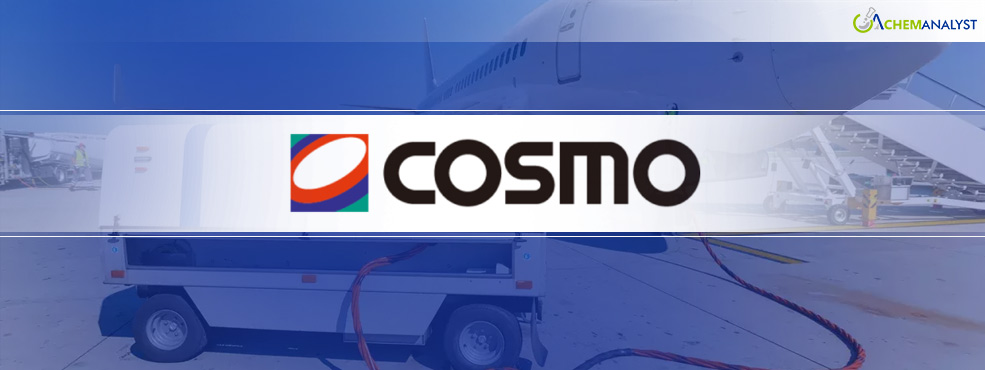Welcome To ChemAnalyst

Cosmo Energy Holdings is set to commence Japan’s first domestic production of sustainable aviation fuel (SAF) in April, marking a major step toward the country's goal of replacing 10% of jet fuel with cleaner alternatives. However, cost challenges and raw material constraints remain key hurdles.
As Japan’s third-largest refiner, Cosmo will produce SAF from used cooking oil at its Sakai refinery in western Japan. "Our goal is to supply 300,000 kiloliters of SAF by 2030 through domestic production and imports," said Takeshi Takada, general manager of new business development. Japanese refiners are mandated to supply SAF equivalent to 10% of their total aviation fuel sales by 2030, aligning with global efforts to cut carbon dioxide (CO2) emissions in the aviation sector.
Cosmo's strategy involves producing 30,000 kiloliters of SAF annually at Sakai, scaling up to 150,000 kiloliters from its Sakaide site by 2029 using bioethanol, and importing 120,000 kiloliters from Thailand’s Bangchak and other Asian suppliers. A final investment decision for the Sakaide project is expected in fiscal 2026, with government subsidies covering approximately half of the capital expenditures for both initiatives.
The Sakai refinery is projected to produce 24,000 kiloliters in fiscal 2025 after accounting for maintenance. Cosmo has already secured most of its customers, including Japan Airlines (JAL), All Nippon Airways (ANA), and DHL. By launching production and sales ahead of competitors, the company aims to gain expertise and establish strong customer relationships despite ongoing challenges in reducing costs, securing raw materials, and locking in long-term buyers.
SAF production remains significantly more expensive than conventional jet fuel, with costs estimated at three to five times higher. While increasing production volume may help reduce distribution costs, major cost reductions are unlikely due to the high price of raw materials, which represent a large portion of expenses. "Japan's subsidy scheme is at a medium level by global standards. Countries will compete to offer attractive incentives for SAF deployment to maintain their hub airport status," Takada noted.
Cosmo’s SAF initiatives are part of a broader national effort to boost local production and meet Japan’s projected SAF demand of 1.7 million kiloliters by 2030. The government has allocated 340 billion yen ($2.3 billion) in subsidies over five years to support multiple SAF projects, including Eneos’ 400,000-kiloliter facility in Wakayama, Idemitsu Kosan’s 250,000-kiloliter plant in Yamaguchi, and Taiyo Oil’s 200,000-kiloliter project in Okinawa, all currently in the design phase. Additionally, Idemitsu has secured funding for a separate 100,000-kiloliter SAF facility at its Chiba refinery near Tokyo.
These projects are crucial for reducing Japan’s reliance on imported SAF and positioning the country as a leader in sustainable aviation fuel production.
We use cookies to deliver the best possible experience on our website. To learn more, visit our Privacy Policy. By continuing to use this site or by closing this box, you consent to our use of cookies. More info.
